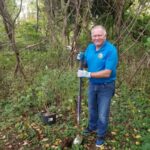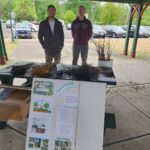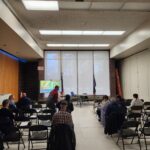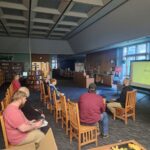DOH Small Wellness Mini Grant
Oswego County, NY
Update: We are thrilled to announce the successful completion of our urban agroforestry project in collaboration with our partners in Fulton, NY. Through community engagement and educational workshops, we have provided valuable opportunities for residents to learn about urban gardening and growing their own food, helping them navigate the challenges of the COVID-19 pandemic and prepare for future climate-related impacts.
We extend our heartfelt gratitude to the Fulton Garden Club and all our partners who helped make this project a success. Your support and dedication have been instrumental in connecting with the community and ensuring the widespread dissemination of vital information.
Thank you for being part of this journey and contributing to a more sustainable and resilient future.
ASLF will be working in collaboration with our partner organizations in Fulton, NY, through several integrated community engagement and education activities, to provide the community with opportunities to learn how urban gardening and growing own food in the city could help people through the COVID-19 pandemic and prepare for the future that is under the influence of unpredictable consequences of climate change. We will incorporate the information of some interesting forageable plants, and how to use them in the urban landscape and in the kitchen, into the outreach for COVID-19 mitigation strategies.
COVID impact to the supply chain demonstrated that more diverse, localized food productions are important supplemental sources of food, particularly for fresh produces. The production consisting of diverse varieties is an imperative need to create a more sustainable and resilient food supply in the time of climate change. In addition, during pandemic, not only did backyard and community gardens supply food for the community, but also provide a therapeutical venue to help people through the difficult and unusual period of time. For such reasons, ASLF will expand our urban agroforestry program to the neighboring community in Oswego County, and incorporate easily implementable practices in the strategy to mitigate and prepare for the future impact of such events. We will organize three presentations/workshops to introduce the urban agroforestry practices, their application in urban landscape, and how they benefit the day-to-day living in the city, help cope with COVID-19 pandemic, and prepared for climate readiness.
We will work with Friends of Fulton Parks and Fulton Block Builders among other partners to organize these events. Our partners will help us connect with the community, making sure the information to reach the population in need. Through presentation and hands-on activities, these workshops will introduce the concept and practices of urban agroforestry, showcase examples of applications in the urban landscapes, demonstrate some common, as well as some unusual, edible native plants, their edible parts and their uses and preparation for food. We will emphasize how gardening and other outdoor activities, particularly growing own food, can help manage the impact of COVID-19 and similar events, and introduce people into some native plants that are suitable for different urban landscapes and easy to grow and harvest. These workshops will include tasting samples donated by our project partners, and there will be free seedlings for a number of participants to bring home at each workshop. We expect to attract a large number of community members in these events, where other related information on COVID-19 health literacy will be distributed as a part of the presentation/publication.




